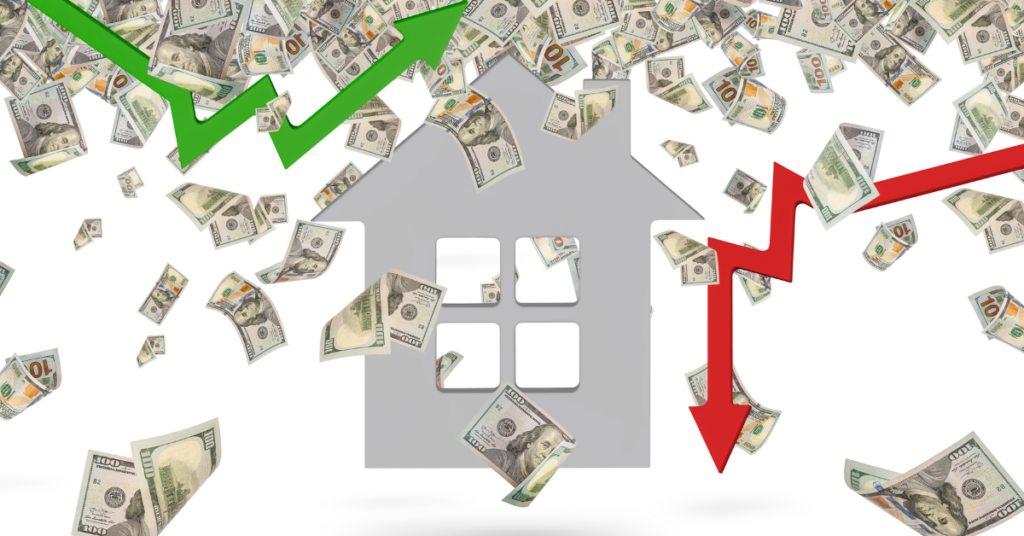In the vast landscape of Houston’s real estate market, predicting the future can be daunting and essential for potential homebuyers and investors. As we look ahead to 2024, it becomes increasingly important to analyze the key factors shaping home prices in this vibrant city. From economic trends and population growth to infrastructure projects and environmental considerations, a plethora of influences are set to play significant roles in determining the future trajectory of Houston’s real estate market. In this article, we delve into these top five influential factors that are poised to reshape Houston’s housing landscape over the next few years. By examining each force individually and exploring their interrelationships, prospective buyers can gain valuable insights into what lies ahead for one of America’s most dynamic cities in terms of its residential property sector.
The Impact of Economic Trends on Houston Real Estate Prices
Economic trends have a significant impact on the prices of real estate in Houston. This is because economic conditions play a crucial role in determining the demand and supply dynamics of the housing market.
- When the economy is booming, with high employment rates and strong consumer confidence, people are more likely to invest in buying homes, increasing demand for real estate properties. This increased demand drives up prices as sellers can command higher offers.
- Conversely, during an economic downturn or recession, when unemployment rates are high and consumer spending decreases, there is usually a decrease in demand for housing. With fewer buyers entering the market, sellers may have to lower their prices to attract potential buyers.
Understanding these economic trends can provide valuable insights into predicting future changes in Houston’s real estate market. By monitoring factors such as job growth, wage levels, and overall economic stability, investors and homeowners can make informed decisions about buying or selling properties.
Population Growth and its Effect on Houston’s Housing Market
Houston’s population is projected to continue growing in the coming years, and this growth will have a significant impact on the city’s housing market.
- Increased demand for housing: As more people move to Houston, there will be a greater demand for homes, both for rent and purchase. This increased demand could lead to higher home prices as competition among buyers becomes more intense.
- Strain on affordable housing: With population growth comes the need for affordable housing options. However, if supply doesn’t keep up with demand, it could potentially create a strain on available affordable housing in Houston.
- Urban sprawl and development: The influx of new residents may also result in urban sprawl as developers try to meet the needs of the growing population by building new neighborhoods further away from the city center. This expansion could change the landscape of Houston’s real estate market and impact property values in different areas.
Overall, population growth will play a significant role in shaping Houston’s housing market in 2024 and beyond. It is crucial for industry professionals and policymakers to consider this influence when making decisions about future development plans, affordability initiatives, and investment strategies.
Infrastructure Projects and their Influence on Home Prices in Houston
As the city of Houston continues to grow, infrastructure projects play a crucial role in shaping the real estate market. These developments not only enhance the quality of life for residents but also have a significant influence on home prices.
Transportation improvements:
Investments in transportation infrastructure, such as new highways or expanded public transit systems, can increase accessibility and reduce commuting time for homeowners. With improved connectivity, properties located near these transportation hubs often experience an upswing in demand, leading to higher home prices.
Utilities expansion:
Infrastructure upgrades related to utilities like water supply or energy distribution can have long-term impacts on real estate values. As Houston expands its utility networks to keep pace with growing demands, properties that benefit from enhanced services will likely see appreciation in their prices.
The impact of mixed-use spaces:
Incorporating mixed-use spaces into urban development plans – combining residential areas with commercial or recreational facilities – can significantly affect housing costs. This approach creates vibrant neighborhoods that attract businesses and entertainment options while increasing property values due to convenient access to amenities.
Public investment in infrastructure projects is essential for supporting economic growth and improving residents’ quality of life. By understanding how these initiatives shape the real estate market, buyers and sellers alike can make informed decisions regarding their investments.
Environmental Considerations and their Role in Shaping Houston Real Estate
Houston’s real estate market is being significantly influenced by environmental considerations, as the city grapples with climate change and its consequences. Flooding has become a major concern for homebuyers, who now prioritize properties located in safe flood zones. As a result, homes situated in elevated areas or equipped with advanced flood prevention measures are commanding higher prices compared to those at risk of flooding.
Additionally, the increasing awareness of sustainability and energy efficiency among buyers has sparked a demand for eco-friendly homes. Features like solar panels, high-efficiency appliances, and green building materials are attracting more buyers who want to minimize their impact on the environment while reducing their utility bills.
The significant influence that environmental factors wield over Houston’s real estate market cannot be underestimated. Homebuyers today have become increasingly concerned about climate change effects such as flooding while also valuing sustainable features that reduce their carbon footprint. As such trends continue to shape buyer preferences, developers will need to adapt by incorporating environmentally friendly elements into their projects if they want to stay competitive in this ever-evolving market.
Technological Advancements and their Implications for Houston’s Housing Market
Impact of Artificial Intelligence (AI) on Home Searches
Artificial intelligence will revolutionize the way homebuyers search for properties in Houston. AI-powered algorithms will analyze vast amounts of real estate data, providing buyers with tailored recommendations based on their preferences, budget, and lifestyle. This personalized approach will streamline the home buying process, helping buyers find their dream homes more efficiently.
Rise of Virtual Reality (VR) Tours
Virtual reality tours will become a common feature in Houston’s housing market. Prospective buyers can experience immersive virtual tours of properties without physically visiting them. This technology enables customers to visualize themselves living in different properties, making it easier to narrow down options before scheduling physical visits. VR tours will save both time and resources for agents and potential buyers alike.
Role of Blockchain in Real Estate Transactions
Blockchain technology holds immense potential to transform real estate transactions by ensuring transparency and security throughout the process. In 2024, blockchain platforms may eliminate intermediaries like escrow companies or title insurance providers through smart contracts that automatically execute agreements once predefined conditions are met. This system will simplify property transactions while reducing costs for both buyers and sellers.
Overall, technological advancements such as artificial intelligence, virtual reality tours, and blockchain technology will play significant roles in shaping Houston’s housing market in 2024. These innovations have the potential to enhance efficiency within the industry by providing better search tools for homebuyers, offering immersive experiences through virtual reality tours, and streamlining transaction processes with secure blockchain platforms. The future looks promising for home buying in Houston with these emerging technologies at hand.
Government Policies and Regulations: How they Shape Houston Real Estate Prices
Government policies and regulations play a crucial role in shaping real estate prices in Houston. These policies can have both positive and negative impacts on the housing market.
One important policy that affects home prices is zoning regulations. Zoning laws determine how land can be used, which can impact the supply of available real estate. In Houston, where there is limited land development, zoning restrictions can drive up home prices as demand outpaces supply.
Another influential factor is property tax rates. High property taxes can deter potential buyers or lead to increased home prices as sellers try to recoup these additional costs. Conversely, lower property tax rates may attract buyers and increase housing demand.
Additionally, government incentives for affordable housing initiatives can also impact real estate prices in Houston. These programs aim to make homeownership more attainable for low-income individuals or families by offering subsidies or reduced interest rates on mortgages. While these initiatives promote affordability, they could potentially lead to an increase in overall demand and subsequently higher home prices.
Overall, government policies and regulations significantly shape the future of Houston’s real estate market by impacting supply, demand, and affordability factors that ultimately influence home prices in the city.
You may also be interested in reading Analyzing the Crystal Ball: Predicting the Direction of Houston Mortgage Rates in 2024

